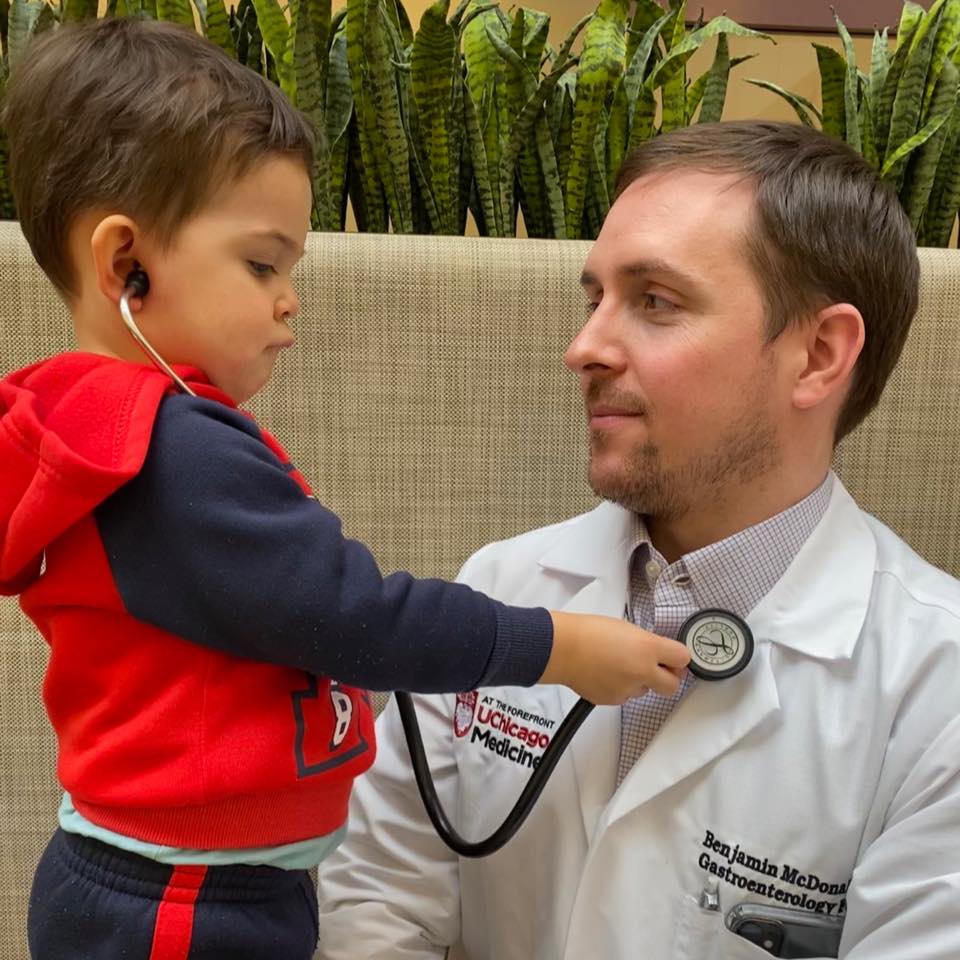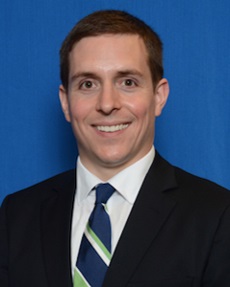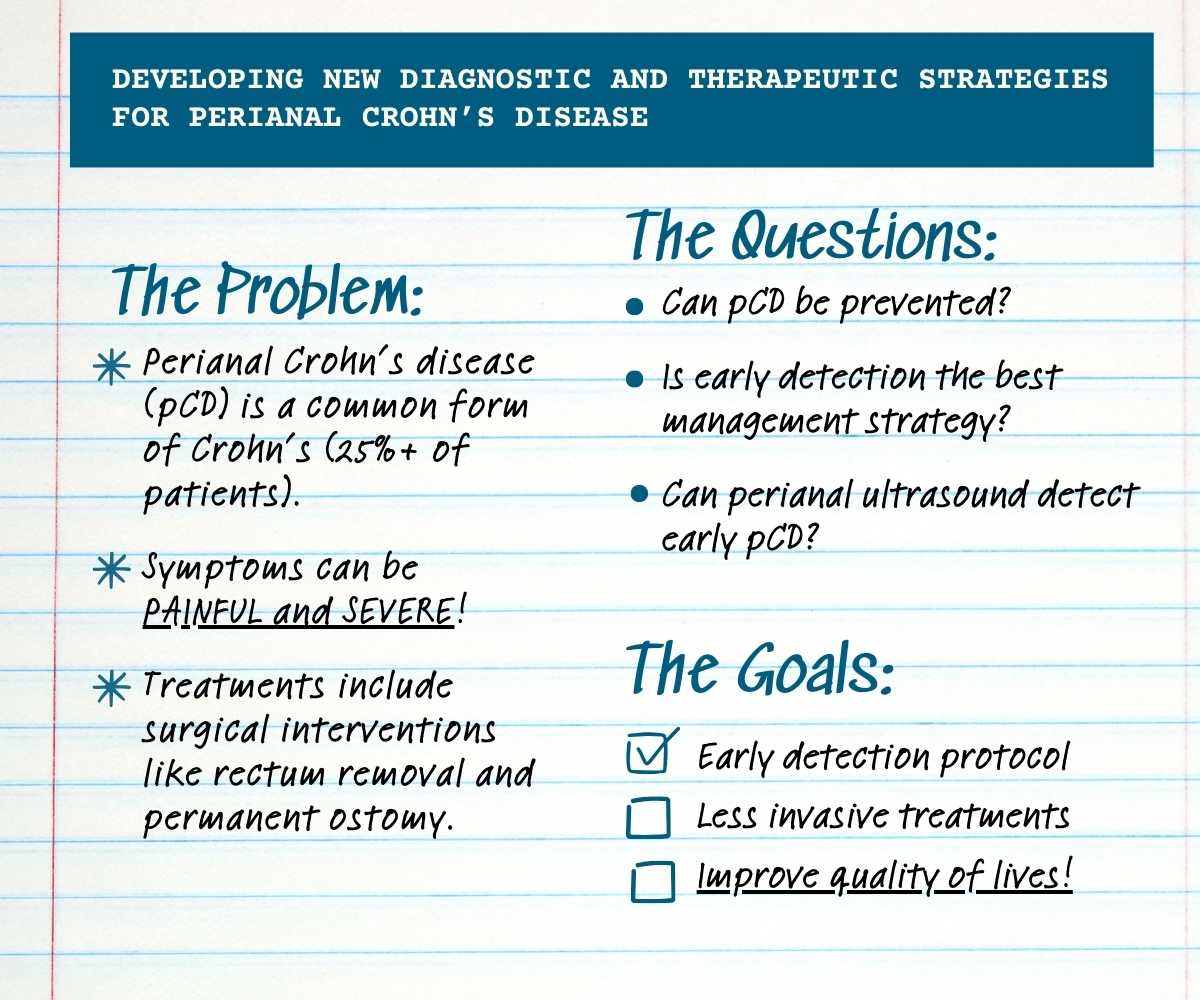Issue 01
From David T. Rubin, MD
“We are thrilled to shine a spotlight on Benjamin McDonald, MD, PhD, one of a team of doctors at the Digestive Diseases Center at UChicago Medicine working to improve patients’ lives. His research and work are changing how we diagnose and treat a common and difficult type of Crohn’s disease. We are delighted to share it with you.”
THE RESEARCHER
Sharing the Inspiration
“During my first day as a gastroenterology fellow at the University of Chicago, I worked with Dr. Rubin in his complex IBD clinic and saw a patient whose story has stuck with me. He had such severe perianal Crohn’s disease that it was painful for him to sit in the exam room chair. I wondered how this was possible. Why did this happen? Why didn’t his previous treatments work? I realized that there were major gaps in our understanding of perianal Crohn’s disease and much to be gained by further study.”

Family Time
Dr. McDonald, originally from Danville, Kentucky, pursued his undergraduate degree at Brown University. During his time there, he met his wife, Adriana. In 2007, the couple moved to Chicago. Dr. McDonald completed his MD, PhD in immunology, and medical training at the University of Chicago. Together with Adriana, they cherish their family life with two boys, Noah (6) and Ori (1), who are the center of their universe.
Work Time
Perianal Crohn’s disease can be debilitating. Dr. McDonald’s work aims to identify patients at risk of developing perianal Crohn’s disease before they ever develop symptoms. If successful, doctors may be able to shift their focus towards disease prevention instead of disease treatment.
THE RESEARCH
To date, the progress on this project is remarkable. Dr. McDonald reports, “We’ve confirmed that there is an asymptomatic form of perianal Crohn’s disease (or “subclinical” perianal Crohn’s disease) that is present in ~25% of Crohn’s disease patients and that it can be detected with a short, painless, non-invasive transperineal ultrasound exam. We are still working to characterize subclinical disease in greater detail, but we already know that the microbiome of patients with subclinical disease is unique and we think this will help us to better understand why perianal disease occurs.”
USE THESE LINKS TO LEARN MORE
PATIENT RESOURCES
Follow the GI Research Foundation on social media



